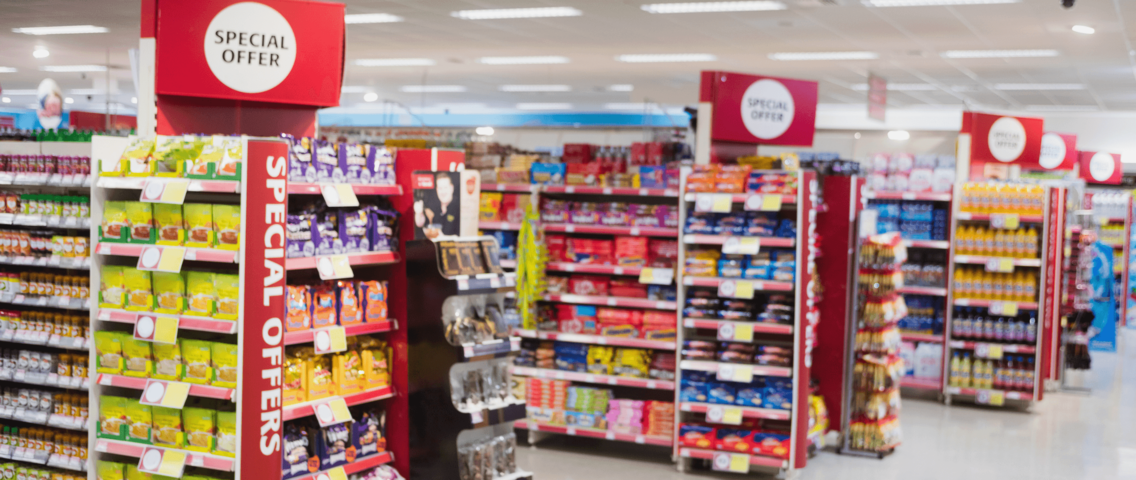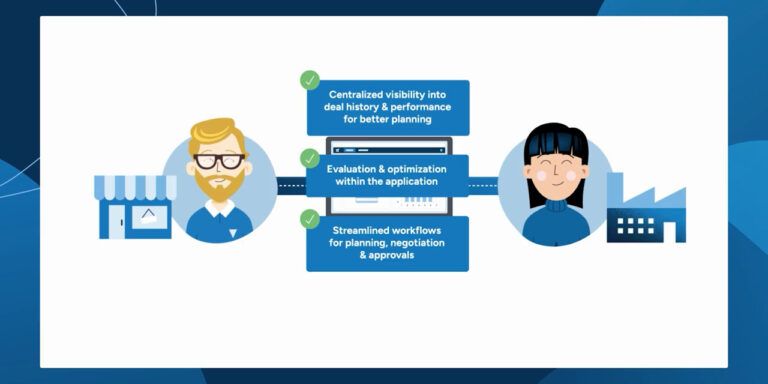5 ways to improve retail promotion strategy with planning technology
Apr 2, 2024 • 5 min
Promotion planning may feel a bit like magic to those lacking knowledge of it. After all, a promotion is a seemingly contradictory tactic at heart. A retailer intentionally lowers their prices for cost-conscious consumers constantly seeking the best deal — and somehow, profitability results.
But profitability in retail promotion planning isn’t a given. A robust promotion planning solution lies at the heart of any truly successful retail promotion strategy is a robust promotion planning solution. The right tool can identify the right strategies and campaigns to appeal to consumers while ensuring those campaigns actually turn a profit for retailers. This visibility can make all the difference, considering the hundreds or even thousands of promotions a retailer might run at any time.
Stiff competition in retail makes creating smarter, more profitable retail promotion strategies essential to long-term success. Here are five ways retailers can use promotion planning software to outsmart competition and win over cost-conscious customers.
1. Automate manual retail promotion planning processes to save time and reduce errors
Promotion planning solutions offer retailers a collaborative tool to develop retail promotion strategies, set targets, track performance, and react to price changes and inventory levels, adjusting promotions and resources to serve changing needs.
Access to centralized demand forecasting data helps organizations stay aligned and make better decisions without the added complications of numerous spreadsheets. This unified data frees up the mental headspace of the planning team and automates the heavy lifting, leaving the team to do what they do best: plan optimal promotions campaigns.
2. Minimize under- and over-pricing scenarios to preserve margins and maximize sales opportunities
Unpredictable inflation forces retailers to review their pricing more regularly. Since campaigns are sometimes planned as far as 18 months in advance, the window for making changes is often tiny. Promotion planners must make informed decisions as late as possible to account for these unexpected changes and manage risk.
Companies can have thousands of campaigns live or in preparation, so the cost of underpricing promotions (and taking losses) or overpricing them (and missing sales opportunities) is significant. A solution offering centralized forecasting data gives retailers a larger window to decide which promotions to cut to remain profitable in constantly changing environments.
3. Maximize revenue, profit, and traffic with a flexible, creative planning process
Measuring the effect variables like price and mechanics have on campaign success for thousands of promotions is complex and time-consuming — uncovering insights and acting upon them even more so. At least 15% of campaigns typically fail to deliver either revenue, profit, or traffic, costing retailers millions of dollars annually.
Purchasing managers can make evidence-based decisions about promotions and pricing when given access to reliable performance and forecasting data.
Incomplete results from past campaigns and “gut feeling” guidance too often force promotion planners to make critical revenue decisions. Automating analysis frees time for more thorough campaign planning, scenario testing, and experimentation. Purchasing managers can make evidence-based decisions about promotions and pricing when given access to reliable performance and forecasting data.
READ MORE: Unified pricing and promotion planning: The key to pricing precision and powerful promotions
4. Capture the true impact your retail promotion strategy has on the top and bottom line
KPIs like basket value or online conversion rates only partially represent a retail promotion strategy’s performance. A sophisticated promotion solution estimates baseline sales, calculates vendor funding, and accounts for key effects like switching, stockpiling, and the halo effect to provide retailers with a reliable profit or loss outcome.

The actual value of the promotion is only visible when looking at all its effects. In Figure 2 below, the promotion unintentionally incentivized shoppers to switch away from the more expensive Brand B. Consumers also chose to stock up on Brand A while it was cheap, further eating into profits. After accounting for vendor funding, this promotion ended up losing money.

Imagine this reflected across thousands of promotions each year. For retailers who can’t account for all the factors that influence a promotion strategy’s success, it’s impossible to know how much campaigns contribute to or take away from their business.
5. Present compelling data-led cases in vendor discussions to maximize external funding
Vendor funding can prove the difference between executing a profitable and unprofitable retail promotion strategy. However, retailers lack the data and insights to maximize external funding opportunities and run optimal campaigns. Since vendor and retailer incentives aren’t always aligned, retailers quite often find themselves at a considerable disadvantage.
Planners can use scenario testing to propose novel campaigns or counter vendor proposals that don’t serve the retailers’ best interests.
A robust promotion solution allows retail planners to use past campaign data to gain more leverage in future campaign planning. Planners can use scenario testing to propose novel campaigns or counter vendor proposals that don’t serve the retailers’ best interests. Retailers become more confident in their promotion decisions and more empowered in their discussions with vendors.
Build a better retail promotion strategy with RELEX
A magician needs years of practice and the right props to perform jaw-dropping spectacles. In promotion planning, the true magic — striking the perfect balance between enticing cost-conscious customers and maintaining healthy profit margins — requires skilled planners using the right promotion planning software.
RELEX Solutions stands at the forefront of revolutionizing retail promotion strategy. RELEX equips retailers with the analytics and forecasting needed for precision in promotions, identifying optimal strategies and campaigns to ensure profitability alongside customer satisfaction. With RELEX, master the art of promotion planning and turn every discount into a dazzling display of strategic success.





